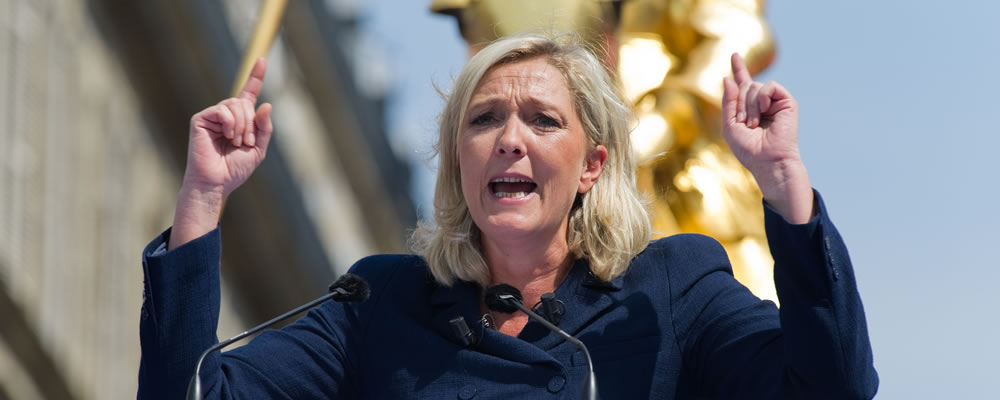Construction output data has today provided a welcome piece of good news for the Euro, which is labouring under the weight of an uncertain political outlook. Not only was the November figure revised up from 0% to 0.6%, December’s year-on-year growth clocked in at an impressive 3.2% – the fastest pace of growth in five months.
On the face of it, it seems like the Euro is facing a bucketful of headwinds over the coming months. There are positives amongst the negatives, but which will come to dominate Euro trade in 2017?
On a political front, Greece continues to dominate headlines and has played a key role in the Euro declining -1.4% on a trade-weighted basis since the beginning of February.
It seems as though the International Monetary Fund (IMF) could soon be excluded from the upcoming bailout talks. The Fund has ramped up its calls for debt relief for Greece over the past couple of weeks, but Eurogroup and Athens remain fiercely against such measures.
Leading EU officials have since highlighted that the IMF’s involvement in the fourth round of funding next year was never mandated, just preferable.
This leaves Greece and Eurogroup to thrash out the details before a bailout review can be concluded. Mid-2017 sees Greece having to repay billions to its creditors, so the next tranche of rescue funding needs to be unlocked before then. The longer the talks drag on, the more likely the Euro is to weaken further.
There has been increasing talk that the only way to resolve the problem would be if Greece were to leave the Eurozone. Rules set out in the Lisbon Treaty forbid debt relief, meaning that the country must leave the currency bloc if it wants creditors to forgive some of its debt burden. Germany seems keen for this to happen; as the Eurozone’s powerhouse, Germany’s officials see the stricken Hellenic nation as dragging on the bloc’s overall recovery.
Their arguments were given more force recently when the latest Greek GDP data showed a return to contraction in the final quarter of 2016. The Greek economy ended the year as it started; shrinking by -0.4%.
Other Eurozone figures were also disappointing. German and Eurozone growth slowed against expectations on the quarter and the year, while Italian GDP slowed below forecasts on the quarter. The economy remains in a strong position, but this nonetheless pushed Euro exchange rates lower.
Greece isn’t the only nation at risk of dropping out of the Eurozone. French Presidential elections also risk causing the breakup of the currency project. Far-right candidate Marine Le Pen – once considered an outsider – is making strong gains in recent polls.
Markets and economists had been confident that the more centre-right François Fillon would defeat Le Pen, but his campaign and popularity have taken a severe knock recently thanks to a public scandal regarding the employment of his wife, Penelope.
It is not unusual for French politicians to employ family members, but Fillon is accused of paying his wife and two of his children nearly €1 million combined for work they never carried out. While the investigation is still ongoing, Fillon’s popularity has slumped, with new polls putting him significantly behind Le Pen; whom he was expected to go on to beat in the second round of voting.
Le Pen is particularly concerning to investors due to her plans to take France out of the Euro should she win. Her aim is to reinstate the Franc as the domestic currency and, alongside other nations who wish to return to their original national tenders, create a basket of currencies that would be pegged to the Euro.
Even should the Eurozone manage to escape Greek crises and rising populism unharmed, the shared currency itself could find itself pressured lower by widening monetary policy divergence with the United States.
The markets are already pricing-in two rate hikes this year, but several Fed officials have begun to suggest that three is more likely. Even Federal Reserve Chair Janet Yellen warned recently that it would be unwise to wait much longer to continue normalising monetary policy.
Inflation across the Eurozone is strengthening, which should help the Euro combat the threat of higher US borrowing costs, but the European Central Bank’s (ECB) Mario Draghi has repeatedly clipped the wings of rate hike bets. The chief policy setter wants to see consistent core inflation growth and has blamed much of the recent strength in prices on the oil markets.
Should core growth continue to accelerate, there is a limit to how long the ECB can realistically remain dovish.
Therefore, if the Eurozone can navigate the current and incoming political headwinds and stay its current course, the outlook for the Euro could be rocky, but to the upside nonetheless. For many traders, however, that is a very big ‘if’…



